DIY Synths, Wavetable Creation and a Cross Between an Omnichord & Garageband?: Synth Journal
Plus something new incoming from Cherry Audio!
This week’s sumptuous helping of the smaller stories in the world of synths contains some interesting DIY Synth projects and a compelling new take on hardware strumming synths.
Table of Contents
The NapkeyChord
We kick off today’s Synth Journal with an interesting new Kickstarter synthesizer that has already smashed its target within its first week. It seems us synth nuts aren’t put off by recent crowdfunding failures such as Aodyo.
The NapkeykeyChord is an interesting project that comes from what seems to be the beating heart of synthesizer innovation these days, la belle France! Napkey are a band formed by Benjamin Cholet, who, after deliberating what gear to use on stage, decided that conventional synths didn’t quite cut it, so decided to make their own.
Original iterations of the NapkeyChord resembled a keytar, but for this project, it has evolved into a desktop unit which, given many people’s (bizarre) aversion to keytars, seems sensible. When I alluded to a cross between an Omnichord and Garageband, I was of course referring to the cult instrument from Suzuki and the “Auto Instruments” featured in Apple’s entry-level DAW.
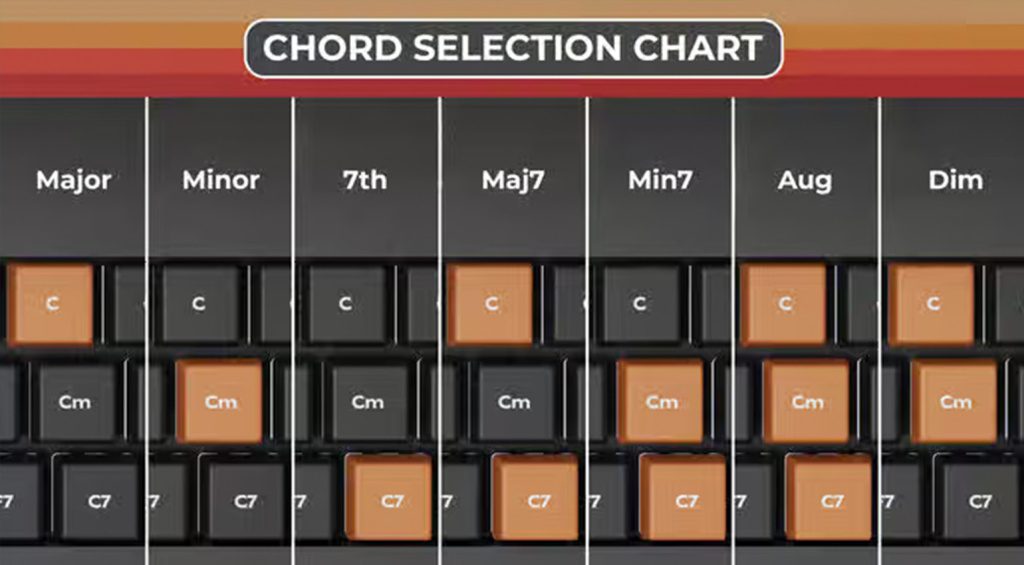
If anything, the NapkeyChord is a lesson in simplicity. There’s a strumming plate on the right and the bulk of the unit is populated with a ‘QWERTY-esque’ keyboard that allows you to select one of 84 chord combinations from 36 keys. Above that, there are three, basic synth controls.
Playing the NapkeyChord couldn’t be simpler. Hold the chord key or keys and strum or tap the plate. “And what will you hear?”, I hear you ask. Well, you can either use the NapkeyChord’s built-in 20-voice polyphonic synth or hook it up via MIDI (TRS or USB-C) to your favourite hardware or software synth.
NapkeyChord appears to be a delightfully simple instrument that has the potential for both compositional or live work. Early bird pricing has all gone now, but you can pledge €350 for the regular NapkeyChord or €399 for the translucent-cased ‘Ghost Edition’. Delivery is estimated by June of 2025.
As with all crowd-funded projects, there are risks, and you may lose your money or project schedules can slip significantly. Please read the risks and business plan on the Kickstarter project page before committing.
Learn more and back the NapkeyChord Project here.
The Shmøergh Hog DIY Synthesizer
The first of two DIY synths this week comes in the form of the Shmøergh Hog DIY Synthesizer. This delightfully cute little synth is an analogue, two-voice monophonic tabletop synth that is completely open source for both hardware and software.
Each VCO has its own set of waveforms with the ‘Fat’ waveform designed to beef up the tone before it passes through the filter. There’s also a third voice in the form of a switchable noise/sub-oscillator. The envelope seems to be shared between the VCA and VCF and has a simplified set of controls, rather than a typical ADSR control.
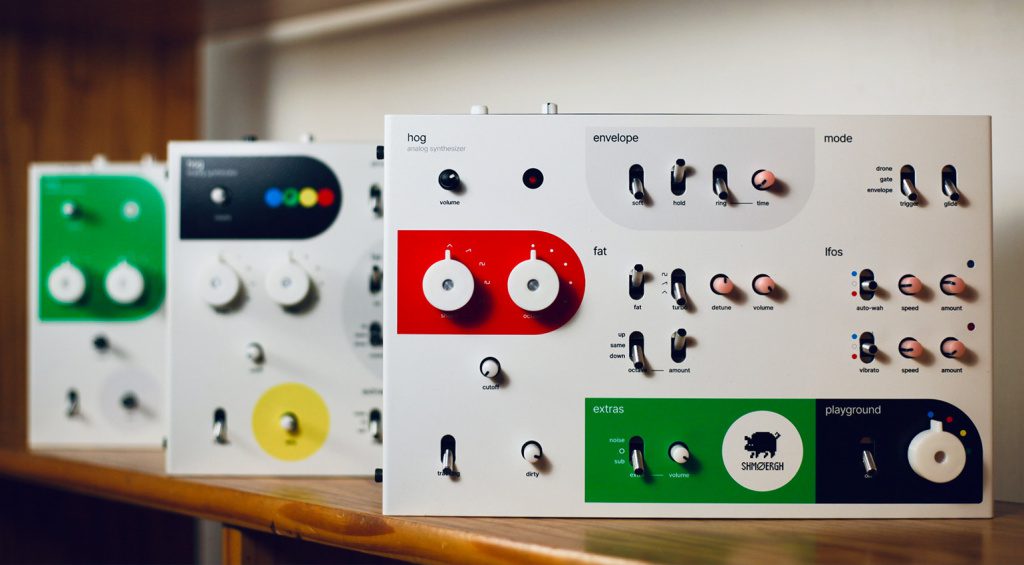
There’s even a switchable gate, so you can use it as a last-note priority drone or a more conventional gate triggered by the gate voltage. smooth movement between notes is delivered by a glide mode. Two triangle LFOs deliver modulations such as vibrato and auto-wah.
The last section is called the ‘Playground’ and features extra modulation effects which include hard sync, FM, filter cutoff AM and a VCA ring mod. There’s also an optional MIDI upgrade available for those that prefer that method of connectivity.
It will be interesting to see this in the flesh and what individual users do with the open-source designs of this DIY synth. Read the Hog user guide here and check out the Github page for the techy details here.
OSS Wavetable Creator
Wavetable synths have become quite the thing recently and any decent wavetable-based synth will allow you to upload your own wavetables to play around with. But not everyone knows how to create their own, or just want to simplify the process.
Ocean Swift Software has seen this need and has come up with the OSS Wavetable Creator. It provides a wealth of wavetable-generating controls or you can use the randomisation features to see how lucky you can get!
This is a great tool for anyone looking to create their own unique wavetables, and also for sound designers working on the ever-increasing number of software and hardware wavetable synths. The list of compatible applications and devices is extensive, and available on their website but it includes, Arturia Pigments, UVI Falcon, Akai MPC Key 61, Groove Synthesis 3rd Wave, Walfdorf M, Nave, Quantum, Iridium, KORG modwave and Reason’s Europa.
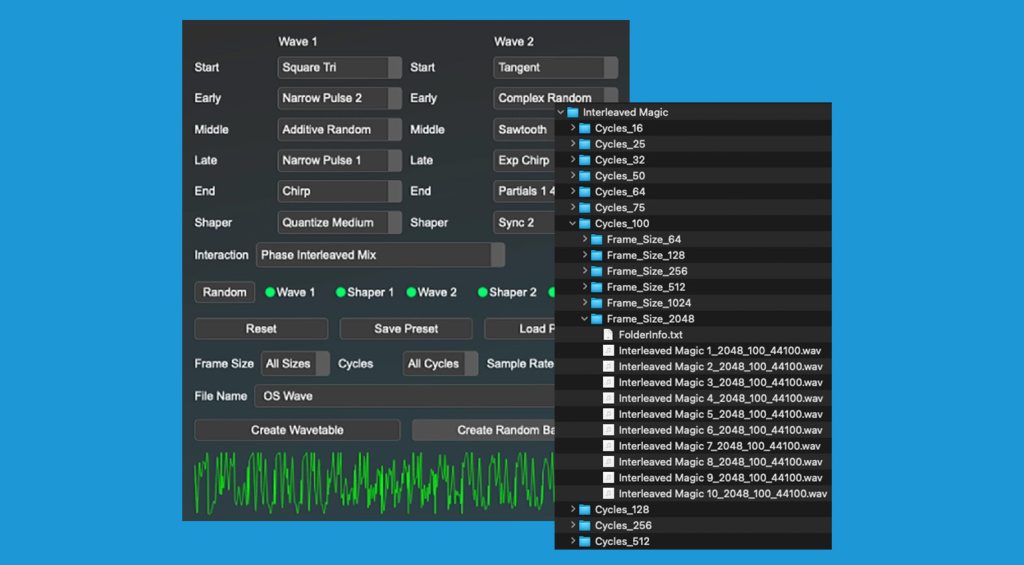
OSS Wavetable Creator is available for a limited time for just €25, down from €40 and can be bought directly from the Ocean Swift website.
Clacktronics‘ Build Your Own Modular
Our second DIY synth this week is from Clacktronics via Thonk and is a great way for the DIY-er to get into modular synthesis, or for the hardened modularist to build on Xmas morn! This beautifully presented kit comes in a handmade binder from Wainwright Bookbinding of London. It’s a real work of art.
Inside the binder, there are ‘pages’ of PCB’s that will allow you to construct 14 eurorack module projects, including the enclosure. There’s a PSU, a micro-controller, two VCOs, a mixer, attenuverters, a VCF, dual VCS, LFO, envelope, two passive mults, two enclosures and two 8HP blanking plates.
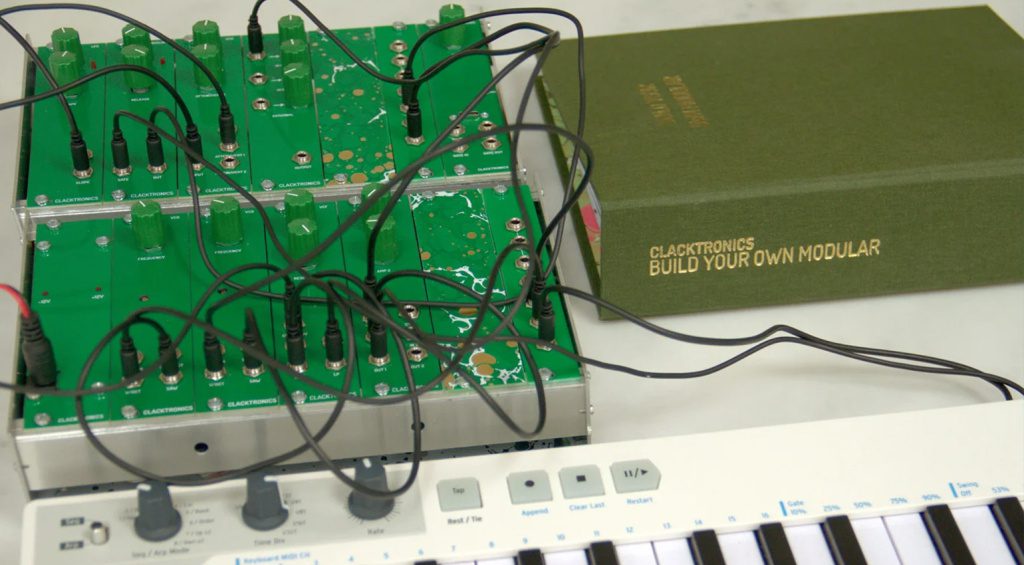
Users will have to provide their own components and a full BOM is available here. Alternatively, if you’re lazy like me, you can add the full BOM to your order, along with an optional 12BV power supply. Oh, you will definitely need to provide your own patch cables!
The Clacktronics Build Your Own Modular DIY synth is available to buy direct from Thonk for £220 ex. VAT.
A New Cherry Audio Synth is Coming
Finally, just a quick heads up that Cherry Audio seem to be shaping up to have at least one last hurrah before the year ends. They’ve recently posted this teaser video, and speculation is rife. All I can say is ‘Watch This Space’ on November 26th!
That’s all from me this week. Make sure you come back next Thursday for the next Synth Journal!
3 responses to “DIY Synths, Wavetable Creation and a Cross Between an Omnichord & Garageband?: Synth Journal”

 4,0 / 5,0 |
4,0 / 5,0 | 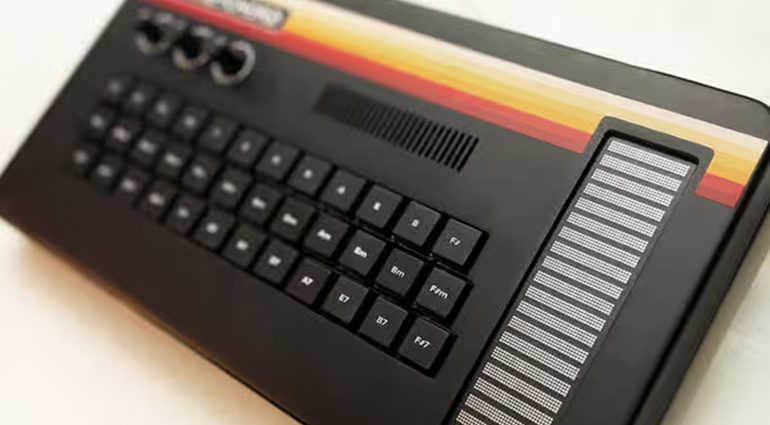

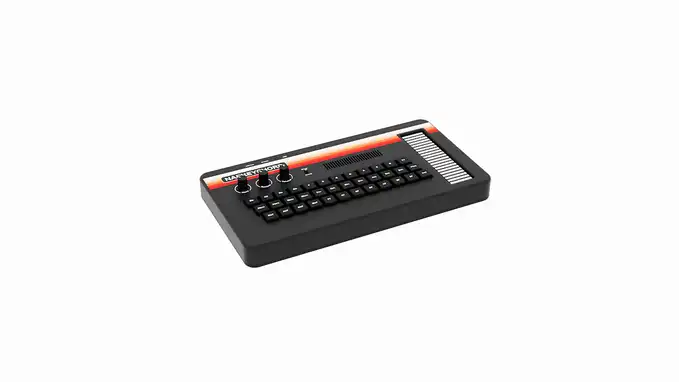
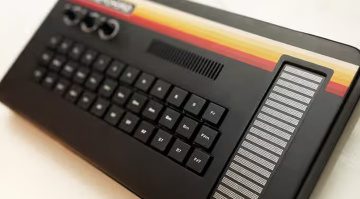

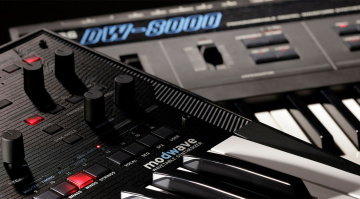
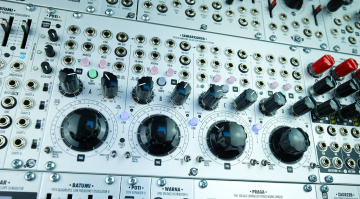
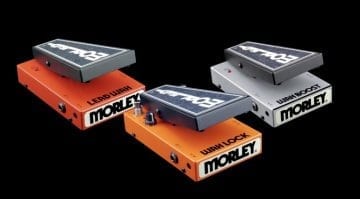
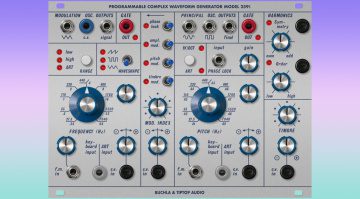
So we went from building your own synthesizer (Eurorack) before you can make music, to building your own module to then build your synthesizer to make music? Brilliant. I’m gonna kickstart a PCB project and call it: Something vaguely related to music 😉
@NapkeyChord: Yeah, just get Scaler 2.
NapkeyChord. Music composition for monkeys. What’s next, a robot to push the Cm key for you??